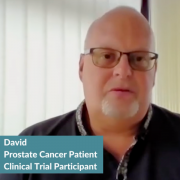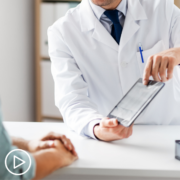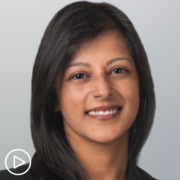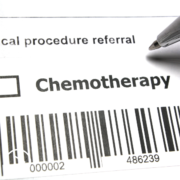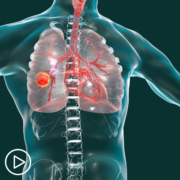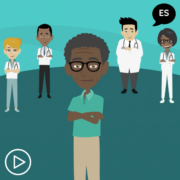Advanced Prostate Cancer: David’s Clinical Trial Profile
Advanced Prostate Cancer: David’s Clinical Trial Profile from Patient Empowerment Network on Vimeo.
Prostate cancer patient David received a diagnosis at stage IV during a routine PSA check. Watch as he shares his prostate cancer journey, his experience with clinical trials and treatments, and his advice to other patients about lessons learned about prostate cancer side effects and the impacts of clinical trials.
See More From Patient-to-Patient Diverse Prostate Cancer Clinical Trial Profiles
Transcript:
David:
Hello, my name’s David. I am 58 years-old.I was diagnosed in 2016 with prostate cancer, I had no actual signs or symptoms of prostate cancer, it was only found due to Army doctors, I had something wrong with me, which had nothing to do with the cancer. They did a PSA check, and my PSA came back at 1050, where it should be around 0. From that I then got sent to a local hospital where I had tests, I had biopsies to open my prostate, which found out I had stage IV prostate cancer.
From there I got asked would I like to go to the Christie County Hospital in Manchester, UK. From there, they offered me the trial called the STAMPEDE trial. This trial was used in different procedures, which is already around, we use them together to try and extend people with prostate’s life. I got to turn the arm where it was also attached with chemotherapy, followed by 20 sessions of radiotherapy. This happened over three, four months, which after that brought my PSA down, but only to round 20 odd. From this after a couple of months, my PSA started to rise fairly quickly. I then got put onto the drug called bicalutamide (Casodex). This lasted a couple of months, because my cancer is so aggressive, it started to grow. I then got put onto another chemotherapy, cabazitaxel (Jevtana). After my first session of the cabazitaxel, I then got a CT scan and from this we found out the growths were still growing.
So after this, I then got put on a drug called abiraterone with [inaudible] which is a stand-only. I was on this for 22 months, which was very good, it brought my PSA down to eight, which is as low as it’s ever been. Like I say, it lasted 22 months, but then the cancer started to come back quite a bit, so my oncologist actually said there’s no actual normal treatment left for me, and asked would I like to go on to trials, clinical, a first stage clinical trial, right away I said yes. My first clinical trial was a Carrick called Carrick, this lasted six months, but again, the cancer started to grow again, so I came off of this. I then have four weeks, no trials at all. It’s what called a clean-out where you can’t have any drugs at all in between trials. I then went on to what was called task 368-1, this lasted longer which lasted seven months. That again, the cancer starts to grow again. So, then I got on this one called CellCentric For the the CellCentric trail, they put you back on to abiraterone, which normally you don’t, wouldn’t take past one to two months… for me, it’s carried on working again. It’s now on seven months of working until it stops working, I can’t go on the new drug called CellCentric.
For me, this is cool because it’s still working, the old drug, and it’s a very…let’s say there’s not a lot of side effects except for what steroids [inaudible]. So at the moment, we’re just seeing how it goes. I have scans every eight weeks, a CT scan and a full body scan from each time they come back, they then decide what’s happening next…and that is my journey up to now, which is five-and-a-half years later.
With the clinical trials, I feel really good at the moment, because as I said, the trial [inaudible] and abiraterone (Zytiga) is not a drug that causes a lot of side effects. Through other trials have been, they are very intense, and that’s what they always warn people, which are overnight stays when you first take the drugs, so they are very tiring, you have to have blood done overnight all the way through the night, you get BCGs to make sure your body is not reacting to the drugs, and then the side effects of the drugs after. So, they are very intense, but also, I am still here, I did not expect to be here. October, this year October I got told I would not be here three years ago, so it shows what clinical trials can actually do for you. I’m still here, I still live a very good life. We go walking, the wife and I quite often, and we did three, four-mile last night, and we just enjoy our lives.
People don’t realize…a lot of men don’t talk about it the physical side and the sexual side of prostate cancer, the treatment, because your libido to go, and it just causes a [inaudible] of your testosterone. You don’t feel like…and it’s a closeness that you lose… Amanda’s been unbelievable, she’s been there for me all the way through. She’s my rock, she’s the one went down down, she pushes me, but then she has days where she’s down. And this is where people need to realize the partners will improve the encounters much as the patient. And this is some of them we talked about…we’re very open about people where we talk about it. We have our days, the last couple of days I’ve been down. But she’s there to try and help me get back, and I try and do it for her when she is…and the family is the same, having the family support, when I’ve been to appointments, I get phone calls, quite a few, I get messages how are things going. And it’s just nice knowing that people do care, we have friends who keep in touch all the time, make sure everything’s okay, and you need that support of your family and friends.
It’s very important for them to be there with you.
The clinical trial to me is drugs that normally are not being used on humans before. They’ve only been tested in the laboratories. So, the first stage is a dosage stage where they check in and see what a person can actually take…so different people have different amounts of the dose. And then from there they go to the expansion stage, and that is when they bring more people, and they know what dose to give people. Well, it’s to find new drugs, which can help other people in the future, as well as myself…I always say to myself, “This could help someone in the future, live for longer, stay longer with their family, be there longer.” It’s helping me other months, as I say, but it’s also to help other people in the future, something that’s not been used with people before.
What I would say to other people who are thinking of going on clinical trials and the families is go for it. They are done so carefully, you’re checked all the time, your bloods are checked, your health is checked, your [inaudible]. It’s something that you can stay longer with your family. There could be cures in the future with this as well, no one actually knows, and it’s something people should not be scared of doing. Like I said, I’m on my third trial, and I will keep on going, I know there are more trials for me after this. And I will keep on going.

